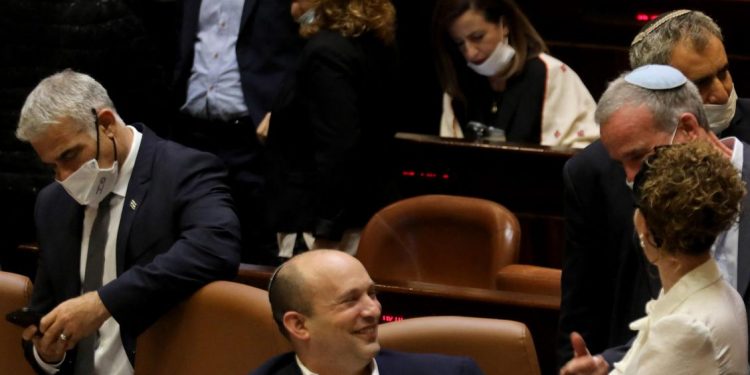Israeli Arab lawmaker joins coalition few days after her resignation
Ghaida Rinawie Zoabi said Thursday she would leave Bennett’s coalition, leaving it with only 59 members in the 120-seat Israeli parliament.
She cited the government’s uncompromising policies in Jerusalem and the construction of settlements in the West Bank which, in her opinion, alienated her constituents, Israel’s Palestinian fellow citizens.
Two other lawmakers from Bennett’s party have already broken ranks and joined the opposition, led by former leader Benjamin Netanyahu. Rinawie Zoabi’s departure raised the possibility of new parliamentary elections less than a year after Bennett’s broad ruling coalition took office. But even with a 60-member coalition that is stuck with the opposition, passing legislation will remain difficult.
Recent Israeli-Palestinian tensions, triggered by numerous deadly Palestinian attacks on Israel and Israeli arrest raids in the occupied West Bank, and fueled by repeated clashes between Israeli police and Palestinian protesters in a holy site in Jerusalem, have shaken the stability of the coalition.
But on Sunday, Rinawie Zoabi turned the tide, saying her main concern was to ensure “results for the needs of Arab society” in Israel and to prevent an ultranationalist opposition extremist from becoming the next chief minister of police.
She announced his return to the coalition ranks after meeting with Foreign Minister Yair Lapid, who tweeted that the two had “an open and reasonable conversation about the real needs of Arab society” and put aside the their disagreements.
As the leader of a small nationalist party, Bennett heads a cumbersome coalition of eight different parties: from accommodating factions supporting the Palestinian state to ultra-nationalists and, for the first time in Israel’s history, an Islamist Arab party.
They joined forces in June after four consecutive deadlocked elections with the aim of ousting longtime Prime Minister Benjamin Netanyahu, who is on trial for corruption.
As part of their union, the parties have decided to put aside divisive issues, such as the Palestinian state, and instead focus on topics such as the coronavirus pandemic and the economy. Despite its internal divisions, it has managed to approve a budget, tackle the pandemic and strengthen relations with both the Biden administration and Israel’s Arab allies.

















